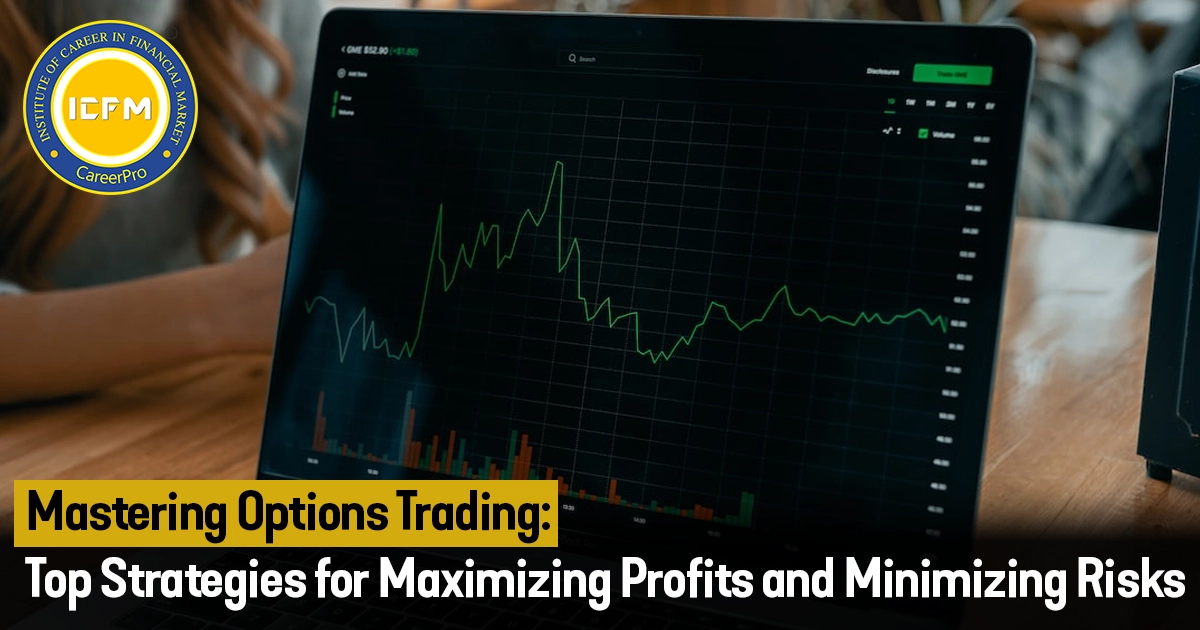Take away the locks that restrict options trading potentials.
Options trading is one of the best investment strategies in the changing face of modern financial markets. It gives traders room to hedge against risks, and speculate prices and get leveraged on their positions. However, mastering options trading requires a deeper understanding of its intricate mechanics and strategies. Hence, there is a need for option trading courses that provide structured learning paths for beginners and experienced traders alike.
Why Option Trading Courses are Important
Option trading courses are meant for individuals who desire to have a deep knowledge of this field. They have an organized curriculum consisting of introductory topics, and advanced strategies alongside practical applications in option trading. The purpose behind these programs is to enable participants to acquire essential skills and knowledge necessary to excel in this market.
Advantages of Signing up for Options Trading Courses
- These are courses that offer a deep insight into the fundamentals of options trading, including analysis of options contracts, pricing, and various forms of options.
- Proficiency in Advanced Strategies: Learn sophisticated techniques such as spreads, straddles, and strangles that are vital for maximizing profits while minimizing risks.
- Hands-on experience is provided through simulation practice or using trading platforms in many courses
- Professor Facilitators: option trading courses are normally led by experienced traders and financial experts who pass on valuable insights and provide mentorship.
- Certification and Credibility: Many option trading courses come with certificates that can give you more credibility as a trader.
Options Introduction: It covers bases such as what options are, how they work and the different types (calls and puts).
• Options Pricing and Valuation: This goes into the factors that determine option prices like underlying asset price, volatility, time decay and interest rates.
• Basic Strategies: Simple strategies like covered calls and protective puts are introduced which are important for beginners.
• Advanced Strategies: The following section describes advanced techniques such as iron condors, butterflies, and calendar spreads that are meant to improve trading outcomes.
1. Practical Applications and Case Studies
Option trading courses usually use practical applications to fill this gap between theory and practice. For instance:
• Live Trading Simulations: By simulating actual market environments in a trading room, participants can apply what they have learned more effectively.
• Case Studies: Strategy implementation and risk management insights can be obtained by analyzing historical market events or trading scenarios.
2. Risk Techniques Management
When it comes to options trading, risk management is a pivotal factor that should not be ignored. Points to note in these option trading courses are:
• Position Sizing: Determining the right size of a trading position to manage risks.
• Hedging Strategies: Trading options to hedge against losses on investments made elsewhere.
• Risk Assessment: Continuously assess and amend strategies as per market conditions and individual risk appetite.
3. Mentorship and Community Support
The availability of mentorship and community support can greatly improve the learning process. What most option trading courses have today include:
• Mentorship Programs where traders get personalized guidance from experienced professionals who provide feedback and counsel them;
• Peer Networking, which provides space for fellow participants’ contacts, sharing ideas, and cooperation in transactions.
Choosing the Best Option Trading Courses
When you decide to get an option trading course, you should consider several things:
• The Course Content and Depth: That is why we have to make sure that the course covers a good set of topics and also has depth in advanced strategies.
• Instructor Expertise: Courses taught by instructors with substantial trading experience and a strong background in finance should be considered.
• Reputation and Reviews: It is important to do some research about the reputation, of course, providers as well as reading reviews from past participants.
• Certification and Recognition: Some courses provide certifications, which are recognized after successful completion of the program. This will add value to your professional profile.
• Flexibility and Accessibility: Make sure that this online or offline course fits into your learning style, schedule, etc.
Conclusion: Find the Appropriate Course to Raise Your Trading Skills
Investing in high-quality option trading courses is a strategic move for anyone serious about mastering the art of options trading. These programs impart invaluable knowledge, practical skills, and confidence necessary to navigate complexities in the options market. For those who would like to sharpen their skills or are still newbies in this field, choosing the right training may be exactly what they need for a successful start.









